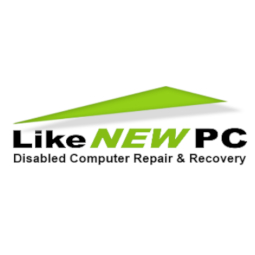
This whitepaper details all of the threats faced by the personal computer and why you should be aware of them.
Cyber security, also known as computer security or IT security, is the field of protecting computer systems from theft of information, damage of hardware, software, or data. The field is also concerned with preventing the disruption of services through denial-of-service attacks or the misdirection of services through botnets.
Cyber security is rapidly growing in importance as the world increasingly relies on the internet and wireless networks, computer systems, smart devices, and the many other devices that make up the Internet of Things. There are many different vulnerabilities, exposures, and attacks that personal computer users should be aware of, including: backdoors that allow bypassing of security, denial of service attacks, direct-access attacks, eavesdropping, phishing, privilege escalation, social engineering, tampering, spoofing through use of emails, IP addresses, Media Access Control addresses, and biometric samples, and the new type of multivector, polyrhythmic cyber threats, classified as fifth-generation cyber attacks.
All types of computer systems are at risk, including those of financial regulators and institutions, telecommunications, the power grid, nuclear power plants, energy companies, utilities, industrial equipment, the aviation industry, consumer devices such as personal computers and mobile devices, large corporations, increasingly computerized automobiles, government and military systems, medical devices and hospital systems, the energy sector, and the Internet of Things. Hackers will often target personal computers to gather passwords, procure financial account information, or use a PC in the construction of a botnet to attack another target.
All of these dangers and more are described in the whitepaper by Bob Wing, the CEO of PCPinpoint Technologies, Inc. PCPinpoint Technologies specializes in empowering users with the products needed to protect their personal computer like a pro in an industry that often rips off the consumer and is full of fraud and waste. Wing and Harvey Lawton, founders of PCPinpoint, have a long legacy of innovations and automation in the computer industry. The LikeNEWPC service provided by PCPinpoint Technologies is the very first automated computer repair program that fixes most of the major problems that affect personal computers. Their program is simple enough that a beginner can use it but is also powerful enough that professionals use it as well. LikeNEWPC handles extortion threats like ransomware, malicious viruses, and malware that slows down and/or disables normal computer use.
The whitepaper also addresses the myth that mainstream anti-virus security programs are capable of defending a PC from threats and protecting the user’s personal data. It points out that most computers are probably already infected by one of the many different types of cyber threats. Some of those threats place across many different attack vectors include account hijacking, bootkits, backdoors, keyloggers, exploits, eavesdropping, direct denial of service attacks (DDoS), domain name system hijacking, defacement, ransomware, viruses, worms, rootkits, malware, malicious browser extensions, malicious script injection, malicious advertisements (or malvertising), targeted attacks, Trojan horse attacks, Tor traffic hijacking, logic bombs, payloads, screen scrapers, spyware, and structured query language injection (SQLI).
This whitepaper recognizes that even the very best anti-virus software can only protect from so many threats, and that’s assuming that the user runs the software as they should.
This whitepaper describes the real threats that face personal computers. Users’ information can be copied and used for nefarious purposes, a computer can be slowed or disabled, and your information can be stolen and used to hurt the users. One computer being infected can infect other computers that it connects to via the internet or via data transfer through flash drive or CD. This whitepaper describes the many different ways a computer can get infected—from pop up ads to suspicious downloads—and discusses how incredibly vulnerable most personal computer systems are too coordinated attacks.
If you want to find out how to protect yourself and your family from the multitude of cyber threats, you should download this whitepaper.
